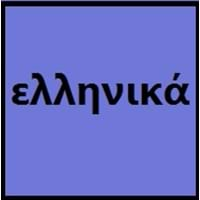Arabic greetings vs Greek greetings
Please in Arabic and Greek
When you want to request someone for something then it is necessary to say please. But if you don't know how to say please in Arabic and Greek then it disappointing. So, Arabic Greetings vs Greek greetings helps us to learn please in Arabic and Greek language.
- Please in Arabic : من فضلك.
- Please in Greek : παρακαλώ (parakaló̱).
In some situations, if you need to apologize then Arabic greetings vs Greek greetings provides to say sorry in Arabic and Greek language.
- Sorry in Arabic : آسف.
- Sorry in Greek : συγνώμη (sygnó̱mi̱).
You can also learn useful phrases of Best Languages to Learn.
How are you in Arabic and Greek
After you say hello to someone then you will want to ask how are you? And if you wish to know what's how are you in Arabic and Greek then Arabic greetings vs Greek greetings helps you.
- How are you in Arabic is كيف حالك؟.
- How are you in Greek is πώς είσαι (pó̱s eísai).
Even though greetings remain same in almost all the dialects of the language, their pronunciations and accents vary from each dialect to dialect. Know more about such dialects on Arabic vs Greek Dialects.
Other Arabic and Greek Greetings
Are you finding few more Arabic greetings vs Greek greetings? So let's compare other Arabic and Greek greetings.
- Good Morning in Arabic is صباح الخير.
- Good Night in Arabic is تصبح على خير.
- Good Morning in Greek is καλημέρα (kali̱méra).
- Good Night in Greek is Καληνυχτα (Kali̱nychta).





